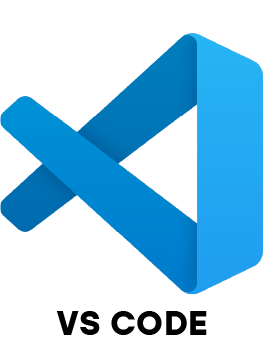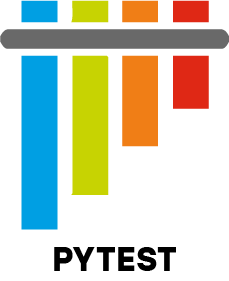Additional Info
Python is an object-orientated, high-level programming language that is extensively used. Because of its flexibility, it is one of the most used code languages. The language is designed to enhance readability and enable different paradigms of programming.
Python provides large data structures, dynamic binding, dynamic typing and several more characteristics to make it ideal for the creation of sophisticated applications. The Python versions are licenced under an open source initiative-certified GPL. The Python versions are copyrighted. Python is excellent for broad activities such as data mining and the easing of huge data.
History of Python
Guido van Rossum created Python at the National Institute of Mathematical and Computer Science in the Netherlands towards the end of the eighties and the beginning of the 1990's.Python is based on a large number of different languages, including ABC, Modula-3, C, C++, Algol-68, SmallTalk, Unix shell and others.Copyrighted is Python. As Perl, Python source code under the GNU General Public License is currently accessible (GPL).A core development staff at the institution now supports Python, while Guido van Rossum remains an essential part of his growth.
Python Features
- The characteristics of Python include − Easy-to-learn − Python's keywords are minimal and straightforward, and its syntax is clearly defined. The pupil can therefore swiftly learn the language.
- Easy to read –
Easy to read The code of Python is clearer to the eyes and more apparent.
- Simple-to-keep −
The source code for Python is quite easy-to-keep.
- A wide, standard library –
Python's library mass is highly portable with UNIX, Windows and Macintosh compatible cross-platforms.
- Interactive mode −
An interactive mode that may test and debug code snippets is supported by Python.
- Portable –
Python has a common platform interface and can work on a wide range of hardware platforms.
- Extendable −
The Python interpreter can include low-level modules. These modules allow programmers to improve or personalise their tools.
- Databases −
All major commercial databases have an interface with Python.
- GUI Programming −
Python allows the creation and transmission of graphics programmes to various system calls, libraries and windows systems, such Windows MFC, Macintosh and the Unix system X Window.
- Scalable −
Python provides a better structure and support for large programs than shell scripting.In addition to the aforementioned, Python has a large number of useful features and few are given below.
1.It supports functional and organised techniques of programming and OOP.
2.It may be used to create huge programmes using a scripting language or compiled into byte-code.
3.It provides dynamic data types of very high standards and allows dynamic type control.
4.Automatic waste pickup is supported.
5.C, C++, COM, ActiveX, CORBA and Java are easy to integrate.
Python Applications
Python supports platform-based operating systems (Mac, Linux, Windows), making the development of applications more easy. Here are several areas in which Python shines in the creation of applications.
- Web back-end or on the server
- Development of mobile apps
- App/software development desktop
- Processing of big data
- Calculations mathematical
- System script writing
Why Learn Python -
Benefits of Learning Python
Python is one of the most widely used languages. It's not a secret. Python has been the leading coding language in the past couple of years, which is why Python's job development possibilities are good.Many large businesses like Pinterest, Instagram, Yahoo! and Nokia make extensive use of Python. Python is preferred by more than 68% of Data Scientists. As stated below, there are several advantages to Python.
1. Easy to Learn & Understand
While Python is a language of high standard that allows you to accomplish complicated tasks, learning and understanding is straightforward. It features a clear syntax and is adapted to novices as well as experienced programmers. Python may look a bit harsh at first if you are a total newbie. This language is used for improved output by large development teams of novice people.
2. Python is Versatile
It's utilised in Web development, data mining, data science, artificial understanding, machine education, gaming, development products, rapid creation of applications, testing, automation and more. Python is becoming increasingly used in many applications as the main language
3. Python’s Popularity & High Salary
Python has always grown to be one of the most popular programming languages. The demand for qualified Python developers is likewise increasing with the growing popularity. Python can assist you have a chance in the world of profitable work.
Python is one of the most paying developers in the market, notably in data science, machine learning and web development.
4. Open-Source Language
Python is an open source language and has been developed by the community.
5. Receives Regular Updates
Python receives constant updating and improvement of its functionality and changing development standards, as with any other programming language.
6. Low Program Management
Python has outstanding readability and easy-to-use syntax that enables beginning language learning and use. It also has an extensive user base that leads to a robust web base. This promotes language development and allows for low administration of programmes.
7. Extensive Support Libraries
Python has a large standard library covering several topics. Since there are numerous libraries with regularly programmed activities, it greatly lowers the writing time and code length.
8. Increased Productivity
No compilation step is in Python, thus the test debug cycle is unbelievably quick. A faulty entry or defect never produces a segmentation error, but raises an exception instead.
9. Third-Party Modules
There are several third party modules available on the Python Package Index, enabling it to communicate with most other languages and systems.
10. Add Value to your Resume
There are several third party modules available on the Python Package Index, enabling it to communicate with most other languages and systems.
11. Get Better Profiles/Switch Career
If you have a Python certificate, it is easy to transition to it because it indicates that you have the necessary skills to carry out different tasks.
What does a Python Developer do?
A developer in Python can work for an organisation in many roles. While working as a web developer, it may create server side Web applications or create different backend components to link the web application to web services and so on.
In other cases, developers of Python may need to collect and analyse data to help important decision makers get insight. A developer from Python is developing, implementing and debugging a project.
Python Developer Responsibilities
- Write logic on the server side
- Set the Server Platform
- Web frameworks work
- Low latency, high availability and efficient apps design and implementation
- Connection, usability, upgrading and automation;
- Security and data protection implementation
- Work with the design team to meet the needs of end users
- Write code that is reusable, testable and effective
- Review existing architectures and provide solutions in the short and long term
- Docker and containerization have fundamental knowledge
A Day in the Life of a Python Developer :
An individual's work role in the organisation relies on the day of his life. The day starts with fundamental programming for background development, data science and automation. The rest of the day of Python developers is expected to proceed:
- Scalable and efficient code writing
- Develop the back-end elements to enhance reaction and performance overall
- Integrating the aspects that face the user in the apps
Python Developers Job Roles & Responsibilities
Some of the leading tasks and duties of Python developers are given below.
- Web Developer
The coding, design and layout of a website is done by a Web developer. You need to grasp frameworks like Django and Flask to become a Python Web developer. You also have to know about technology at the front end (like JavaScript and HTML5).
Python Developer Skills
Certification is the key to remain competitive and successful in the industry. You can get a clear knowledge of the key subject in a certification course. However you need the following abilities to thrive as a Python professional:
- Python Fundamentals Skills
- Data Types & Variables
- OOPS principles, data structures,
- Control declarations, conditional and loops
- I/O Activities
- Concepts for file handling, exception management, generators and iterators
- Knowledge Database
Web Frameworks
1.Flask Django
2.CSS, HTML
3.Architecture of MVC-MVT
4.Development skills Front-end
5.Server Side development
6.Script Writing
Soft Skills Required
1.Skills of analysis
2.Faculty of design
3.Good abilities in communicating
How to Become a Python Professional?
Find out why you want to study Python before you delve into it. This might inspire you and assist you achieve the final objective without being bored of it. Select a range of interests such as data science, machine education, mobile apps, websites, gaming, etc.
Where can I Learn Python Programming?
1. Online Courses
Python classes are offered on several online platforms including Udemy, Coursera and EdX. The online video lessons help you remain up to speed and provide you with practical knowledge and advice. If you are a Self-Learner, you may learn about Python's variables, commands, loops and functions through Python online tutorials and e-learning courses.
.
2. Google’s Python Class
The Python class of Google is a free online resource for those with a bit of programming expertise. It provides textual resources, videos and exercises to better grasp Python. This course is for those students who know what a "variable" or "if statement" is. You don't have to be a coding specialist.
3. The Python Tutorial
Www.python.org is Python developers' official website. The Python Tutorial, Python's official documentation, is available on the website. Whether you're a novice without any previous expertise in programming or an experienced programmer, the Python language may be learned in this lesson.
4. Books
If you prefer to read books, you may learn Python from several popular books. Some book recommendations are as follows:
5. Python Podcast
You may listen to Python's podcasts if you don't want to read a book or view a video instruction. talkingpython.fm is such a website that Python Podcast provides you the opportunity to learn about Python.
6. freeCodeCamp
The interactive web learning platform is freeCodeCamp.com. It is an online community that helps individuals learn how to code via the construction of projects. It allows individuals to interact through forums and conversations and gain information. A range of online lessons are available in the site to assist you learn Python.
Who should take up the Python certification?
Anyone may follow a Python programming certification course. A bachelor's degree is the minimum required diploma to take a Python course. But post-graduate students of all fields and levels can join the Python Core Institutes. Only when the fundamental Python certification is complete, students can take advanced Python courses.
Eligibility & Prerequisites to Learn Python
The Python certification or course is not subject to predefined qualifying requirements. It is, however, simpler to understand ideas and proceed to the upper levels for IT experts. Working experience of 2-3 years will also be useful in similar projects.
One of the most important prerequisites for Python is for the applicant to have a strong understanding of any other language. The aspirant will assist in less time to study Python.
Python Scope in India
Python has seen tremendous growth among developers and companies in India as one of the most popular languages. In emerging technologies like machine learning and artificial intelligence, Python has a large role to play in the times to come. The language of the future is probably because testers must update their abilities and learn Python in order to deal with the AI and ML technologies.
In the previous five years Python, PHP, and C++ have been compared to these patterns from January 2021. Apart from the prominence of PHP and C++ programming languages, the popularity of Python is constantly decreasing.
Python has witnessed significant growth as one of the most popular languages among developers and enterprises in India. Python has a major role in the new-edge technologies of current and upcoming times like ML and AI. It is likely to be the language of the future as testers will have to upgrade their skills and learn Python to work with the AI and ML tools.Python has seen tremendous growth among developers and companies in India as one of the most popular languages. In modern and emerging technologies such as ML and AI, Python plays a key role. The language of the future is probably because testers must update their abilities and learn Python in order to deal with the AI and ML technologies.In the previous five years Python, PHP, and C++ have been compared to these patterns from January 2021. The popularity of alternative programming languages such as PHP and C++ is steadily decreasing.
Career Prospects after Python Certification
- Python Developer
- Python Developer - Machine Learning and Analytics
- Python Developer - Django/ Flask
- Python Developer - Flask/ SQLite
- Python Developer - E-mobility
- Full Stack Web Developer - Python/Javascript
- Python Developer - Flask/SQLite
- Python - Backend Developer
- Technical Consultant Python
- Data Scientist - Machine Learning/Python
- Software Developer - Python
- C++ Software Engineer - Python/Java
- Python Developer - Backend
- Automation Architect Python
- Python Developer - Electric Mobility
- Lead - Python
- Python/Django Developer
- Senior Python Developer - Flask
Average Salary - Python Experts
The average salaries of Python programmers are:
Web Developer Salary Range
A developer's average pay in India is Rs. 3,07,800 per year. The average pay of a web developer with less than 1 year's experience is Rs.225,000 annually.Senior web developers with 10-19 years experience earn an average yearly wage of 10.00,000 rs. a year.
Data Scientists Salary Range
The average pay of data scientists in India is Rs. 7,08,000 per year.A data scientist with less than 1 year experience may make around 5,00,000 rs annually with less than one year's experience.In India, a 5-9 years-old middle-level data scientist makes Rs. 1,004,000 annually.
Machine Learning Engineer Salary Range
A machine teacher has an average remuneration of Rs 6,71,500.
An Rs. 5,00,000 per annum pays a Machine Engineer with less than one year's experience.
A mid-level engineer's average pay is Rs. 11,73,000 per year.
Which Industries Hire Python Developers?
Python has been used in different sectors for several Python applications such as web development, apps development, integration and support, ERP development, and product development. There is a large need for Python in various areas worldwide, from banking and finance to education and e-learning.
- Internet and Technology
- Logistics & Transportation
- Publishing/Advertising
- Automotive
- Healthcare
- Retail & ECommerce
- Travel & Tourism
- Banking & Finance
- Product Companies
- Education & E-Learning
- Media & Entertainment
- Top Companies Hiring for Python Developers
- Cisco Systems
- Instagram
- Facebook
- Google
- Amazon
- Youtube
- Dropbox
- Quora
- Yahoo
- IBM
- American Express
- J.P. Morgan
- Bank of America
- Netflix
- Uber
Python's advantages
1. Reading, learning and writing easy
Python is an english-like, high-level programming language. It makes reading and understanding the code simpler.Python is easy to pick up and learn, thus many suggest Python to novices. In comparison with other popular languages such as C/C++ and Java you require less lines of code to do the same job.
2. Productivity improvement
Python is a language that's highly productive. Because Python is easy, developers can concentrate on fixing the issue. They don't have to take too long to learn programming language syntax or behaviour. You write less code and you do more.
3. Language interpreted
Python is a language that is interpreted, which means that Python runs the code line by line. In the event of any errors, the execution pauses and reports the problem.Even if the programme contains several problems, Python will only display one error. This facilitates debugging.
4. Typed using dynamics
Until we execute the code, Python will not know the variable type. During execution, the data type is assigned automatically. The programmer does not have to bother about reporting variables and their kinds of data.
5. Open Source and Free
The open-source licence adopted by the OSI applies to Python. This allows it to be used and distributed freely. The source code may be downloaded, changed and even your version of Python can be distributed. This is beneficial for organisations who wish to alter certain behaviours and build their versions.
6. Extensive support for libraries
Python's standard library is vast, and nearly all the features necessary for your work are available. You don't have to rely on outside libraries, therefore.Even if you do, the Python package manager facilitates imports from the Python package index of other fantastic packages (PyPi). The bundles are more than 200,000.
7. Transfers
You must update your code to execute the application on many systems in numerous languages such as C/C++. With Python, that's not the same. Only once do you write and run it everywhere.








































